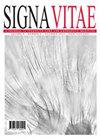区域麻醉与医院业务是否值得?
IF 0.6
4区 医学
Q3 EMERGENCY MEDICINE
引用次数: 0
摘要
麻醉和镇痛的直接费用(包括麻醉费)仅占手术总费用的2-4%。手术程序的类型或持续时间可以使区域麻醉比全身麻醉更便宜或更昂贵。然而,优化在OR内花费的总时间代表了总账单的主要因素(50-60%)。总OR时间的这种减少导致占成本70%的人员成本的显著降低。因此,安排、组织患者通过手术室的流动是第一个需要控制的改善因素。在该领域,区域麻醉可以通过多种机制显著降低这一主要成本因素:(1)为高产出的短手术程序(手部手术病例)设置“闭塞室”,在手术室外的专用空间进行闭塞,将手术室的效率提高56%。(2) 与全身麻醉相比,区域麻醉技术缩短了PACU的停留时间,甚至更容易鼓励PACU搭桥(10-82%的患者)。(3) 与全身麻醉相比,区域麻醉和镇痛显著增加了在门诊基础上进行的手术的百分比。这种向门诊手术的转变导致医院的护理预算大幅减少。(4) 最后,所有ERAS手术程序都需要以某种方式给予局部麻醉剂,从静脉注射利多卡因(与全身麻醉相关)到渗透技术,再到神经阻滞。总之,区域麻醉技术与在整个过程中严格优化患者流量管理相结合,是显著改善医院业务的两个主要因素。本文章由计算机程序翻译,如有差异,请以英文原文为准。
Is regional anaesthesia worthy with hospital business?
The direct costs of anesthesia and analgesia (including anesthesia fee) represents only 2–4% of the total cost of a surgical procedure. the type of surgical procedure or its duration can make regional anesthesia less expensive or more expensive than general anesthesia. However, optimization of the total time spent inside the OR represents the main factor of the total bill (50–60%). Such a reduction in the total OR time leads to a significant decrease in personnel costs which represents 70% of the cost. Thus, scheduling, organizing flow of patients through the OR is the first improving factor to control. In this field, regional anesthesia can significantly reduce this major cost factor through multiple mechanisms: (1) setting a “block room” to perform blocks in a dedicated space outside the OR for high output short surgical procedures (hand surgery cases) improves the efficiency of the OR by 56%. (2) Regional anesthesia techniques reduce the duration of stay in PACU compared to general anesthesia and even allows more easily to encourage PACU bypass (10–82% of patients). (3) Regional anesthesia and analgesia significantly increase the percentage of surgical procedures which are performed on an ambulatory basis, compared to general anesthesia. Such a shift towards ambulatory surgery leads to a major decrease in nursing budgets for the hospital. (4) Finally, all ERAS surgical procedures require somehow the administration of local anesthetics which can go from intravenous lidocaine (associated to general anesthesia), to infiltration techniques, to nerve blocks. In conclusion, Regional anesthesia techniques, when combined to a strict optimisation of the management of patients flow throughout the whole process, are 2 major factors that significantly improve hospital business.
求助全文
通过发布文献求助,成功后即可免费获取论文全文。
去求助
来源期刊

Signa Vitae
医学-急救医学
CiteScore
1.30
自引率
9.10%
发文量
0
审稿时长
3 months
期刊介绍:
Signa Vitae is a completely open-access,peer-reviewed journal dedicate to deliver the leading edge research in anaesthesia, intensive care and emergency medicine to publics. The journal’s intention is to be practice-oriented, so we focus on the clinical practice and fundamental understanding of adult, pediatric and neonatal intensive care, as well as anesthesia and emergency medicine.
Although Signa Vitae is primarily a clinical journal, we welcome submissions of basic science papers if the authors can demonstrate their clinical relevance. The Signa Vitae journal encourages scientists and academicians all around the world to share their original writings in the form of original research, review, mini-review, systematic review, short communication, case report, letter to the editor, commentary, rapid report, news and views, as well as meeting report. Full texts of all published articles, can be downloaded for free from our web site.
 求助内容:
求助内容: 应助结果提醒方式:
应助结果提醒方式:


